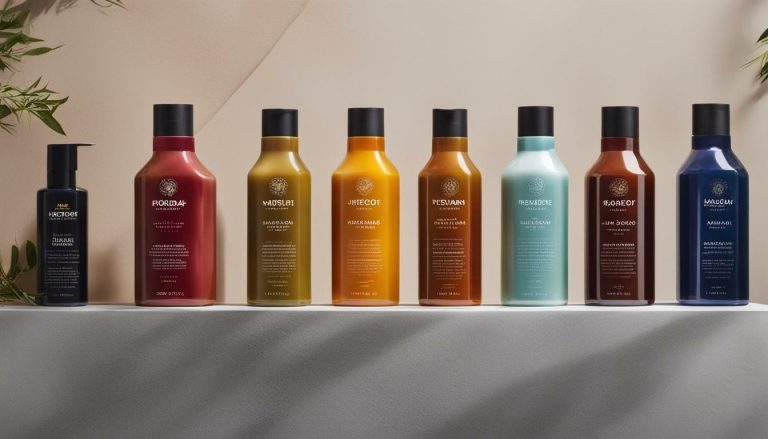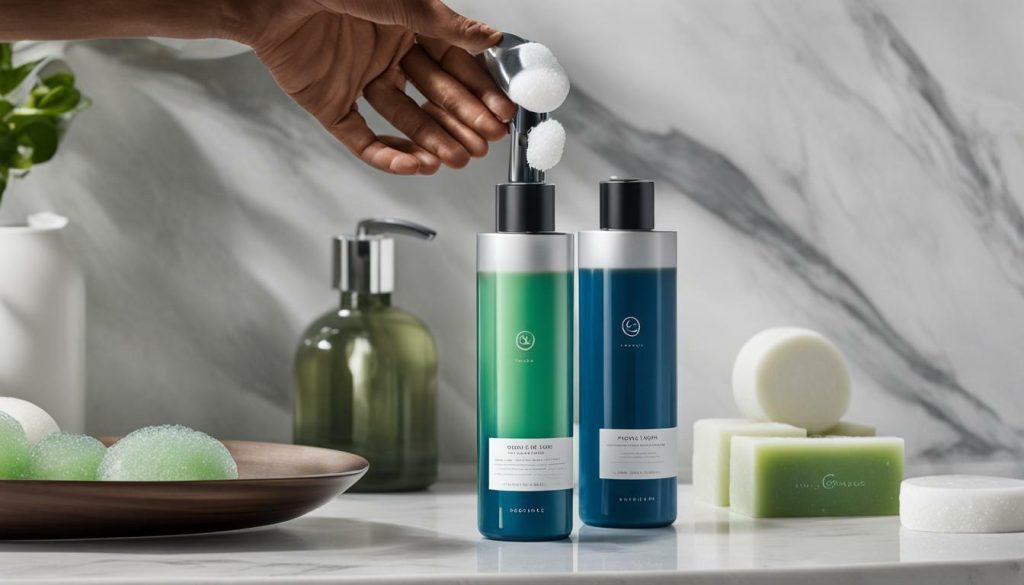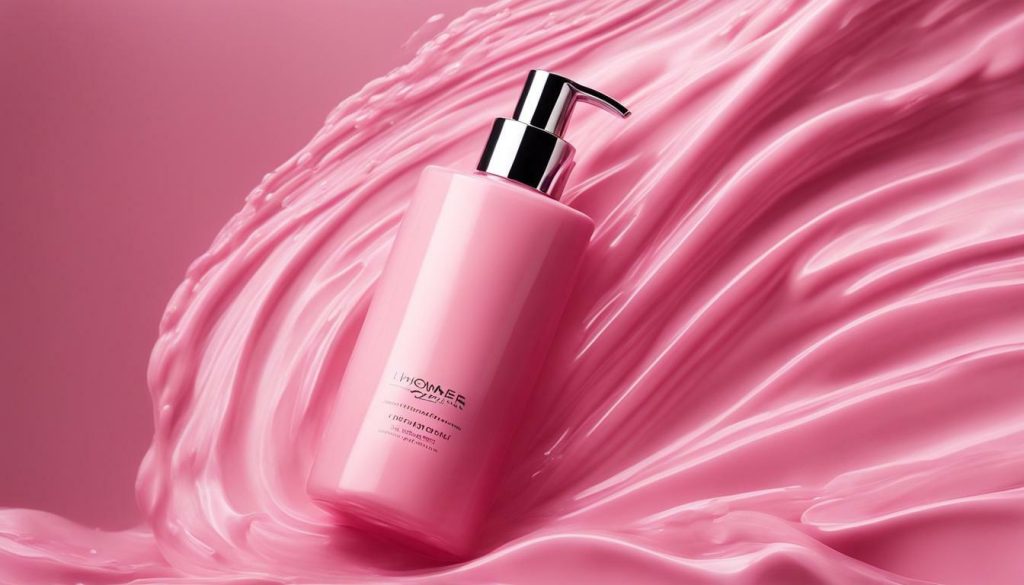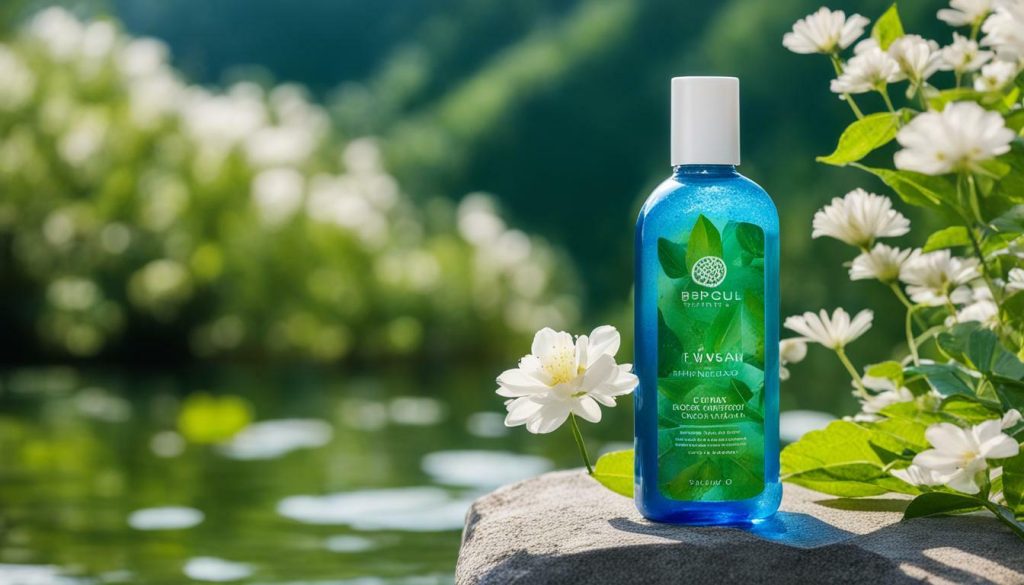Body wash is a ubiquitous product found in almost every household, but have you ever wondered about its origins? In this section, we will take a journey back in time to discover when body wash was invented and how it has evolved into the modern-day product we know and love.
The invention of body wash dates back to ancient civilizations, but it wasn’t until the 20th century that it became a popular hygiene product. The development of liquid soaps and shower gels revolutionized the way people cleanse their bodies and have given rise to a variety of formulations that cater to specific skin types and personal preferences.
- Body wash has been around for centuries, but it wasn’t until the 20th century that it became a popular hygiene product.
- The development of liquid soaps and shower gels revolutionized the way people cleanse their bodies.
- Body wash formulations have evolved to include moisturizing ingredients and fragrances to create a luxurious sensory experience.
- The latest innovations in body wash include the use of natural ingredients and eco-friendly packaging to cater to consumer preferences.
- Body wash has become an integral part of our daily hygiene routine.
Ancient Origins of Body Wash
Long before the invention of modern body wash, bathing was an essential part of daily life and often a sacred ritual in many cultures. Ancient Egyptians, Greeks, and Romans all valued cleanliness and incorporated various natural cleansers into their bathing rituals.
The ancient Egyptians famously used a combination of natron, a naturally occurring substance that contains sodium carbonate, and clay as a soap alternative. Greeks and Romans used olive oil to cleanse their bodies, while also incorporating fragrant herbs and oils into their baths for a luxurious sensory experience.
These early civilizations recognized the importance of using natural ingredients to cleanse and care for their bodies, laying the foundation for the evolution of body wash into what it is today.
“The ancient Egyptians famously used a combination of natron, a naturally occurring substance that contains sodium carbonate, and clay as a soap alternative.”
As civilizations advanced, so did their bathing practices. The ancient Greeks built public baths, while the Romans developed elaborate bathhouses complete with heated floors and steam rooms. In these communal spaces, individuals would often share natural cleansers, leading to the development of social bathing as a means of bonding and relaxation.
While these ancient bathing rituals may seem primitive by modern standards, they laid the foundation for the development of body wash and the importance of hygiene in daily life.
Introduction of Modern Body Wash
Gone are the days when traditional soap bars were the only option for cleansing your body. The introduction of modern body wash, such as liquid soap and shower gels, has revolutionized the way we clean our bodies. These products not only provide effective cleansing but also offer a luxurious sensory experience.
The first modern body wash was invented in the early 20th century. The liquid soap formula allowed for easier application and faster rinsing, making it a popular choice for many. In the 1970s, shower gels were introduced, providing an even more convenient and moisturizing option for bathing.
The use of modern body wash has grown in popularity over the years due to their convenience and effectiveness. They are gentle on the skin, providing a deep cleanse without stripping away natural oils. Additionally, they are available in a variety of scents and formulations to cater to different skin types and preferences.
Nowadays, modern body wash is a staple in most households, providing a more luxurious and convenient option for cleansing your body.
Evolution of Body Wash Formulations
Body wash formulations have come a long way since the days of traditional soap bars. Today, body washes are more than just basic cleansers. They come in a range of formulations with added benefits, including moisturizing and fragrance.
Moisturizing ingredients are now a common addition to body wash formulations. These ingredients work to keep the skin hydrated and prevent it from becoming dry and itchy. Some of the most popular moisturizing ingredients used in body wash include shea butter, coconut oil, and aloe vera.
Fragrance is another key aspect of body wash formulations. Not only does it enhance the overall sensory experience of using the product, but it can also have added benefits for the skin. Many body washes use essential oils and other natural fragrances that have therapeutic properties and can promote relaxation and calmness.
Brands have also started catering to specific skin types with their body wash formulations. For example, there are body washes specifically designed for sensitive skin, acne-prone skin, and dry skin. This customization allows consumers to find a product that meets their individual needs and preferences.
Overall, the evolution of body wash formulations has transformed this everyday product into a luxurious and personalized experience.
As consumers become more conscious of their impact on the environment and their own health, the body wash industry has responded with innovative solutions. Natural ingredients are the latest trend in body wash formulations, providing a gentler and safer alternative to harsh chemicals. Many companies are now incorporating natural extracts like lavender, citrus, and coconut into their products to create a more natural experience. These ingredients not only provide a relaxing scent, but also offer additional benefits such as moisturizing properties and soothing skin.
Eco-conscious consumers are also driving the demand for environmentally-friendly packaging. Body wash companies are now offering eco-friendly options such as using recycled materials for their bottles or even using refillable or biodegradable packaging. These sustainable practices have a positive impact on the environment, reducing the amount of waste in landfills and the harmful effects of plastic pollution.
Additionally, to cater to individual preferences, body wash companies have developed specialized products for specific skin types. Customers can now choose from body washes designed for sensitive skin, dry skin, oily skin, or combination skin, ensuring they find the right fit for their unique needs.
Body washes have come a long way from their ancient origins, evolving into a luxurious sensory experience that offers a range of benefits. As innovation and consumer preferences continue to shape the industry, we can expect even more exciting changes and options in the world of body wash.
Conclusion
In conclusion, body wash has come a long way since its ancient origins. From the natural cleansers used by early civilizations to the modern-day formulations and innovations, body wash has evolved into an essential hygiene product that caters to specific skin types and personal preferences.
Today, body wash is not just a way to cleanse your body but also a luxurious sensory experience with moisturizing ingredients and delightful fragrances. The latest innovations, such as the use of natural ingredients and eco-friendly packaging, reflect changing consumer preferences towards sustainable and ethical practices.
As you continue to use body wash as part of your daily hygiene routine, take a moment to appreciate the journey it has taken over the years. Whether you prefer a classic soap bar or a trendy shower gel, there is no denying the impact of body wash on our lives and its importance in maintaining personal hygiene.

Hey there! I’m Dr. Mary Noland, your trusted authority in dermatology. My 17-year rollercoaster ride in skin science has been nothing short of a masterclass. Whether you’re a newbie or a familiar face, I’m here with open arms and Medicare-friendly services, dedicated to creating your perfect skin haven.
But hold up! There’s more to me. When I’m not elbow-deep in dermatology, I’m lighting up derma blogs with insights that peel back the layers of skin health. Also, as the proud captain of ‘buybodywash.com‘, I provide all the body care goodness you need!
Trust me; I’m more than just a white coat. I’m here to lend an ear, share a laugh, and bring calm with a reassuring voice that’s comforted countless patients.
So, meet Dr. Mary Noland – your dermatologist and your guide and friend on the path to radiant skin. I am excited to meet you soon!





